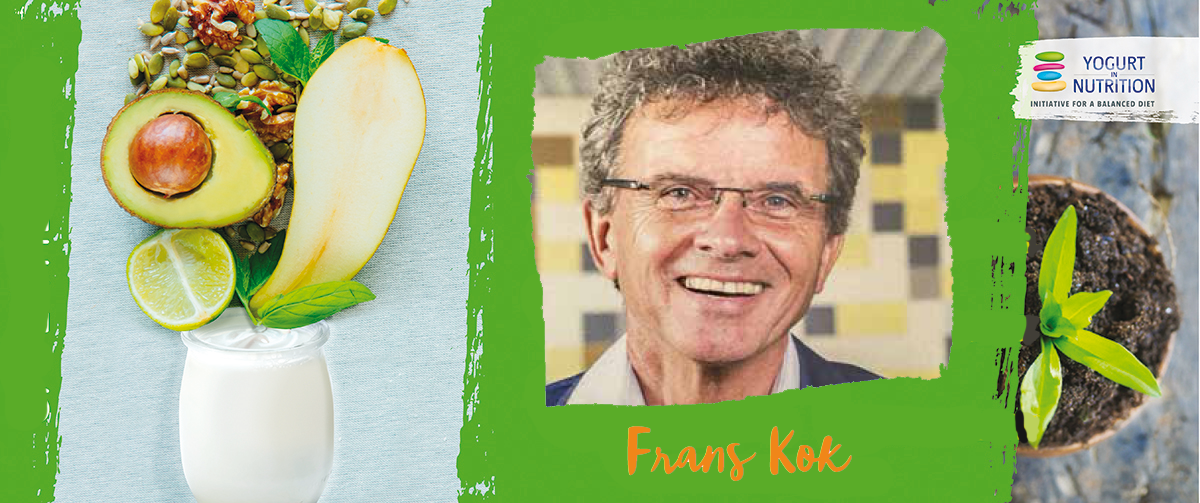YINI experts will gather during ASN annual meeting, Nutrition 2019, to be held in Baltimore (USA), in June 2019. The symposium, organized on Monday June 10th at 7:00 AM, will be on “Sustainable diets”. Before following the symposium live on twitter, we invite you to meet the speakers.
Who is Frans Kok?
Frans Kok is emeritus professor in Nutrition & Health and former head of the Division of Human Nutrition at Wageningen University, The Netherlands. He was trained in human nutrition in Wageningen and epidemiology at Harvard University, Boston USA.
Kok’s scientific research covers topics such as diet in disease prevention, dietary behaviour, and overweight. In emerging economies in Asia and Africa attention is on diet and deficiency disorders.
He is author of around 350 original scientific publication and supervised 70 PhD graduates. Frans Kok is editor of three
nutrition textbooks ‘Personalized Nutrition – Principles and Applications’, ‘Introduction to Human Nutrition’ and “Biomarkers of Dietary Exposure’.
During his career, he acted as Dean of Science of Wageningen University being responsible for the quality of academic research and postdoctoral training. Kok has been member of several international scientific committees, including director of the European Nutrition Leadership Platform in Luxembourg.
During the symposium, Dr Frans Kok will talk about the impacts of sustainable diets on the main food categories…
Can Dairy & Yogurt be part of Sustainable Diets? What do we know?
The food system is a major driver of greenhouse gas (GHG) emissions, water and land use. Dietary changes i.e., more plant-based foods and less animal-based foods will provide benefits for both the environment and our health. However, we need to know more about the environmental impacts and health consequences of reducing and/or replacing specific foods or adopting dietary regimens (vegetarian, vegan, flexitarian).
Animal products such as meat, especially beef, and dairy have a higher carbon footprint than most plant products. For estimating the environmental burden, however, it is important to differentiate in the type of meat (beef, pork, chicken) and dairy (milk, cheese, yogurt). Moreover, dietary change towards less GHG intensive diets, should fulfil nutritional requirements, be cultural and social acceptable, and affordable.
To evaluate to what extent food categories can be part of sustainable diets, observational and scenario-based approaches, and modeling/optimization strategies have been used. For the dairy food category, most studies focused on total dairy, rather than milk and cheese (hard and soft), or yogurt per se. Although the evidence base is still scarce, results indicate that dairy plays a moderate role in the contribution to GHG emission: an emerging rank order in global warming potential is beef, other meat (chicken, pork), (hard)cheese, milk, plant products. Daily intake of 1-2 servings of dairy (up to 500 grams of milk or derivative equivalents, e.g. cheese) may fit in sustainable and healthy diets. Yogurt and milk are of special interest, because of their nutrient richness and low fat content, but more studies are necessary to quantify their impact.
Sustainable diets can be composed in different ways. Ideally, current local dietary habits and eating cultures should be the basis for change. In future analyses, we need to increase the evidence base beyond summaries of national case studies by using optimization approaches with individual data on dietary intake. Most probably, convergence guidelines which recommend a reduction and substitution rather than elimination approach may be more effective in increasing dietary transition rates for planetary health.
Stay tuned… you will be able to follow the conference live on twitter on June 10th, 2019.



